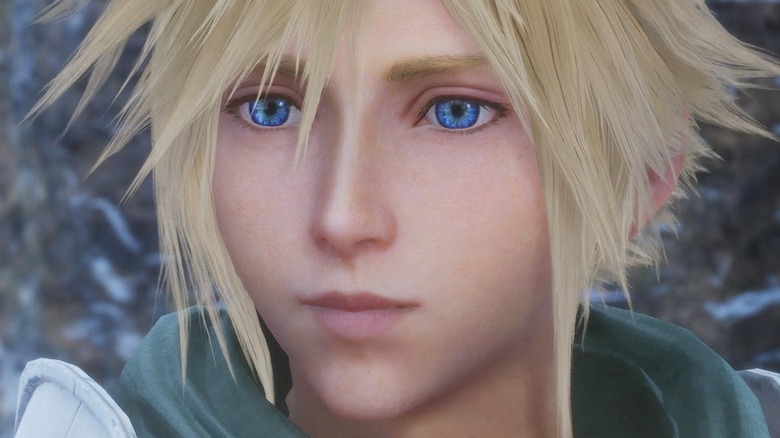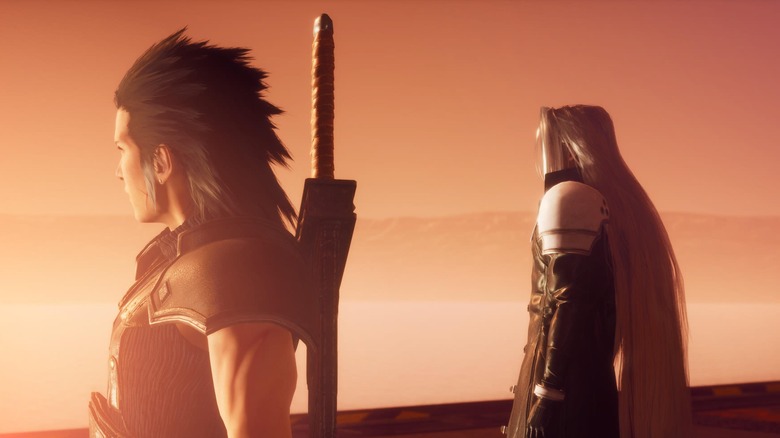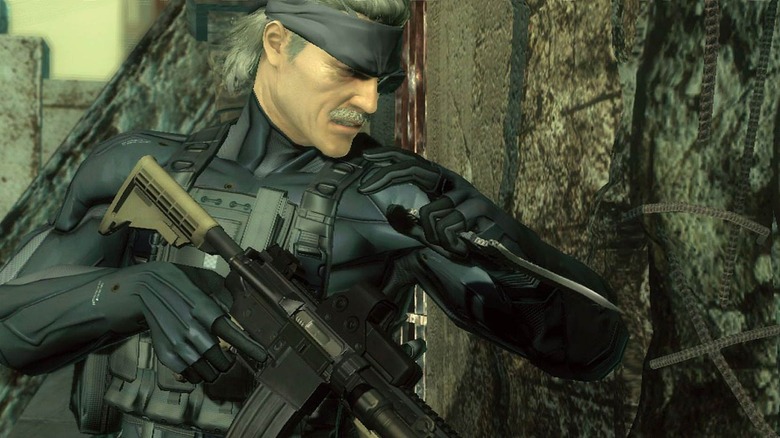The Surprise Twist In Final Fantasy 7 That Parallels Metal Gear Solid
The seventh numbered entry transformed the "Final Fantasy" series, not only changing its approach to character design, art direction, and storytelling, but bringing the franchise into the third dimension for the first time. It also helped make the original PlayStation a success. In fact, when looking back at the biggest titles on the PS1, one of the only offerings that can give "Final Fantasy 7" a run for its money is Hideo Kojima's masterpiece, "Metal Gear Solid."
Like "Final Fantasy 7," "Metal Gear Solid" brought its IP into the modern era while changing the kinds of stories developers could tell via the medium of gaming with its mature and emotional writing. While few would dispute that these titles have more than earned their places in the conversation among the best and most important games of all time, even fans of both franchises might be surprised to learn that the two share a common plot element with a twist that occurs at the tail end of their narratives.
Final Fantasy 7's Cloud twist
Though the complex "Final Fantasy 7" timeline can confuse even longtime fans of the series, one twist reveals that Cloud wasn't actually a member of SOLDIER at all. Though he claims that he was, it turns out that he had developed a complex after watching his friend Zack Fair die in battle while protecting him. In truth, Cloud is nothing more than a cast-off from Hojo's experiments or even an outright failure as far as the Shinra scientist is concerned.
This makes it all the more surprising when "Final Fantasy 7" reveals the true version of the Nibelheim flashback later on, and it shows that Cloud had the ability to best Sephiroth and hurl him into the Lifestream even after Zack fell to the villain. Since Sephiroth was genetically engineered from Jenova cells and was essentially Hojo's perfect soldier as a result, this twist changes the way players see both characters and shows that Cloud and company really can beat Sephiroth in the North Crater.
Despite being inferior creations, Cloud and Snake still succeed
In "Metal Gear Solid," Liquid Snake's whole character motivation comes from the fact that he believes he received the recessive genes in the Les Enfants Terribles project, which created Liquid Snake and Solid Snake as clones of Big Boss in between the events of "Metal Gear Solid 5: The Phantom Pain" and the original "Metal Gear" for NES. Amazingly, the end of "Metal Gear Solid" reveals that Liquid Snake had the dominant genes all along, which is why Solid Snake struggled to kill him. This is also likely why the FOXDIE virus killed Liquid Snake, while it only sped up the aging process of Solid Snake, even though the latter was the target all along.
With this commonality in mind, it's all the more impressive that both "Final Fantasy 7" and "Metal Gear Solid," which only released as PlayStation exclusives within just over a year of one another in North America, had such a similar twist. Since both games were in development at the same time, neither ripped off the twist from the other one, making this common thread simply a coincidence and further adding to the cool factor.



